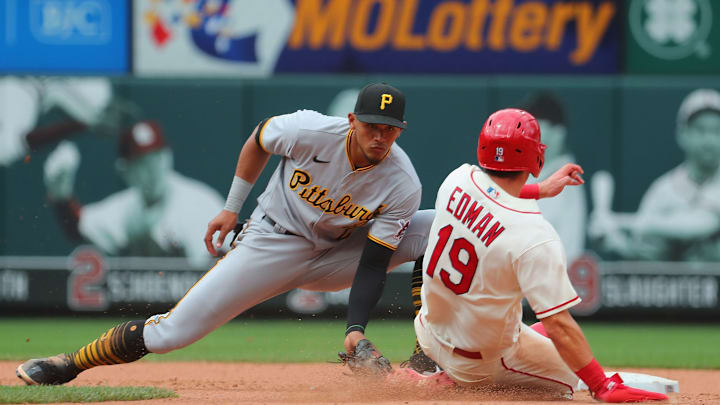Pitch timer
I must be perfectly honest about this one. I may be old, but, one of the best things about baseball was always the fact that it did not have a clock.
The perfect symmetry of three outs per side per inning over nine innings was one of the most charming parts of the game. Therefore, I am not really a fan of the new pitch clock, although I find it slightly less repugnant than the so-called “ghost runner” rule.
Under the new rules, each pitch must be thrown within 15 seconds after the clock starts if the bases are empty, and within 20 seconds with runners on base. Violations by a pitcher result in a ball. Hitters are allowed one timeout per plate appearance and must be set in the batter’s box when eight seconds are left on the pitch clock. Violations of this rule result in a strike called against the hitter.
This can be a significant penalty, especially in a close game. Per Ben Clemens at FanGraphs hitters produce a wOBA of .363 after a 1-0 count but only .270 after a 0-1 count. Of course, a batter’s violation after two strikes would result in a strikeout, and a pitcher’s violation with three balls would result in a walk, although I suspect such instances will be rare.
I certainly understand and appreciate the reason for these changes. Per MLB.com, the pitch clock helped to reduce the length of the average minor league game by 25 minutes. The league hopes that speeding up the pace of play will keep fans engaged, especially younger fans. I will also admit that it can be frustrating to watch a batter endlessly adjust his gloves or a pitcher parade around the mound for what can seem like an eternity between pitches.
Other than speeding up games, the ultimate impact of these new rules is hard to estimate. I would expect that most pitchers and hitters will adjust to the pitch clock reasonably quickly and that the number of violations will decrease significantly as the new year progresses. On the other hand, some notoriously slow workers, like the Cardinals’ own Giovanny Gallegos, may struggle for some time.
I am concerned that come the heat and pressure of the playoffs, a game or even a series may be decided by a pitcher’s or hitter’s clock violation. I certainly hope that the Cardinals do not come out on the losing end if that happens.
